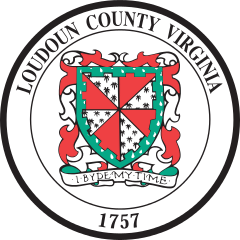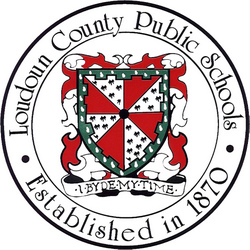Loudoun County Bond Referendums

Article VII Section 10 of the Constitution of the Commonwealth of Virginia requires local governments to obtain voter approval to issue bonds (i.e., contract debt). Government debt should be used sparingly, and only for large and necessary capital projects that cannot be funded through general funds and tax revenues.
Public Safety
Voters in Loudoun County, Virginia, will be asked in a referendum to authorize the county to issue up-to $2,940,000 in general obligation bonds for public safety purposes. Specifically, the county intends to acquire fire and rescue apparatus, although the referendum also allows the debt to be used for “other public safety projects throughout the county.”
Loudoun County is among the fastest growing counties in the United States, and our fire and rescue services must maintain a high level of effectiveness and keep pace with population changes. Our county is also one with unique challenges. We are bordered by a river, a major international airport, and a mountain range, and we are a mix of urban, suburban, and rural areas.
In other words, our fire and rescue services need to be able to handle pretty much anything. They may be called upon to serve at water rescues, plane crashes, hiking injuries, chain-reaction freeway crashes, office building fires, farm injuries, and cats stuck up in trees.
The county has allocated over $71 million to Fire, Rescue, and Emergency Services in the 2016 fiscal year. It is unclear why almost $3 million more should be raised through public debt instead of also being provided from the general fund. The schools, with a budget of over $1.2 billion, could probably spare $3 million without even noticing it. But at the same time it is critical that all planned public safety purchases move forward, so I reluctantly endorse a YES vote on the public safety bond referendum.
Schools
Voters in Loudoun County, Virginia, will be asked in a referendum to authorize the county to issue up-to $150,995,000 for public school purposes. The county intends to use this money to design, build, and equip a new elementary school and high school in the Dulles North area. The referendum also allows the debt to be used for “other public school projects throughout the county.”
Loudoun County Public Schools have a projected enrollment of 75,755 students in the 2016 fiscal year. The official, published estimate is that it costs about $12,700 per-student per-year to operate our schools, but this number is misleading and excludes many school-related expenses. The school debt service fund, school nutrition fund, and other related expenses are not included in this figure.
The school system has a total projected operating budget of $1,258,193,337 across all funds for the 2016 fiscal year . . . which, divided by the projected number of students, comes out to an actual cost of about $16,609 per-student per-year. Our school system—like most others in the country—goes to great lengths to hide, or at least obfuscate, its true costs to the taxpayers, which should serve as a warning to attentive voters.
In truth, more than sixty-eight percent of Loudoun County’s tax revenues are allocated to the schools . . . which is far more than every single other county service combined. And yet, here they are, asking the taxpayers to get on the hook for another $151 million in unnecessary public debt on their behalf. You know, $1.2 billion just isn’t enough.
Our schools are more-than-sufficiently funded. We should be talking about reductions in school funding, not taking out another $151 million loan on top of the incredible largess our schools already receive from the taxpayers. I strongly endorse a NO vote on the school bond referendum.
Loudoun County School Board

Article VIII Section 7 of the Constitution of the Commonwealth of Virginia vests authority for each public school district in a school board, which may be either elected or appointed in a manner defined by law.
The Loudoun County School Board is an elective board composed of nine members, all of whom serve concurrent four-year terms on the same election schedule as the Virginia Senate and the Loudoun County Board of Supervisors. One at-large member is elected in a county-wide race, and the remaining eight members are elected by voters from each of the eight named county districts.
By law, school board elections are nonpartisan, although local party committees often choose to endorse their preferred candidates.
At-Large
Thomas Reed, the incumbent at-large member of the Loudoun County School Board, is not seeking reelection, so two candidates are vying for an open seat: Beth Huck (R-endorsed) and Stephan Knobloch (D-Endorsed).
Huck brands herself as, “A parent, not a politician.” She is a mother, a former teacher, a youth advocate, and a volunteer. She intends to cultivate education excellence, reduce class sizes, and improve communication from the school board to the public.
Knobloch emphasizes his educational experience, having been a teacher, school administrator, and consultant for school systems nationwide. He plans to meet class-size goals, reduce and eliminate the achievement gap between majority and minority students, and improve discipline policies.
Both Huck and Knobloch support establishing full-day kindergarten in Loudoun County.
Both candidates have made some compelling (though vague) proposals. But the sad truth remains that America’s schools are badly broken, and elective school boards have proven unwilling and unable to fix them. Ours is no different.
We have some of the best-funded schools in the world here in the United States, and indeed here in Loudoun County, but overall academic performance is mediocre-at-best compared to our international peers. And even if these candidates were proposing the kind of complete, top-to-bottom school reform program that we need, it is unlikely that the school board has the legal authorities it would need to put them into action.
For this reason, it does not matter which candidate (if any) you choose. I make no endorsement.
Dulles District
Loudoun County’s Dulles District is located in southeast Loudoun, bordering Fairfax County. It includes South Riding, as well as parts of Broadlands, Stone Springs, and Washington Dulles International Airport. Jeff Morse (R-endorsed) is the incumbent Dulles District representative on the Loudoun County School Board, and is being challenged by Kenya Savage (D-endorsed).
Morse was a career officer in the United States Navy who retired at the rank of Commander after twenty years of service. He then went to work as a government contractor, and volunteers with a number of local community groups. He was first elected to the Loudoun County School Board in 2011, and is seeking his second term. He proposes improving teacher retention, fully developing the new Academies of Loudoun, and controlling class sizes.
Savage is a mother and involved parent who has served in a number of volunteer roles, including two terms as the chair of the county’s Minority Student Achievement Advisory Committee. Her campaign is dedicated to advocacy, diversity, inclusion, opportunity, and growth, but she has provided even less detail than Morse with regard to specific policy proposals.
For the same reasons explained above in my review of the ‘at-large’ race, it does not matter which candidate (if any) you choose. I make no endorsement.
Loudoun Soil and Water Conservation District Directors

The Loudoun Soil and Water Conservation District is a political subdivision of Virginia with borders identical to those of Loudoun County. It is managed by a five-person Board of Directors, three of whom are elected by the people of the district every four years. By law, conservation district elections are nonpartisan.
Voters will be asked to vote for three candidates of the four on the ballot. They include incumbent director James Wylie, and new candidates John Flannery II, Marina Schumacher, and L. Ali Shahriari. I have been unable to find any major party endorsements for any of these candidates.
According to the district’s web site, its mission is to “provide leadership in recognizing and addressing soil and water conservation issues and problems, both existing and potential, and to promote and develop education and technical programs which will meet the agricultural and urban conservation needs of our district.”
However, soil and water conservation districts have no apparent authorities of their own. They can advocate and network and print out some pretty brochures . . . but we already have countless private, state, local, and federal organizations that advocate, network, and print brochures on behalf of the environment. Many of them have actual policy and enforcement responsibilities.
And so this district, and its board of directors, has no apparent reason to exist. It is irrelevant which candidates (if any) you vote for. I make no endorsements.

